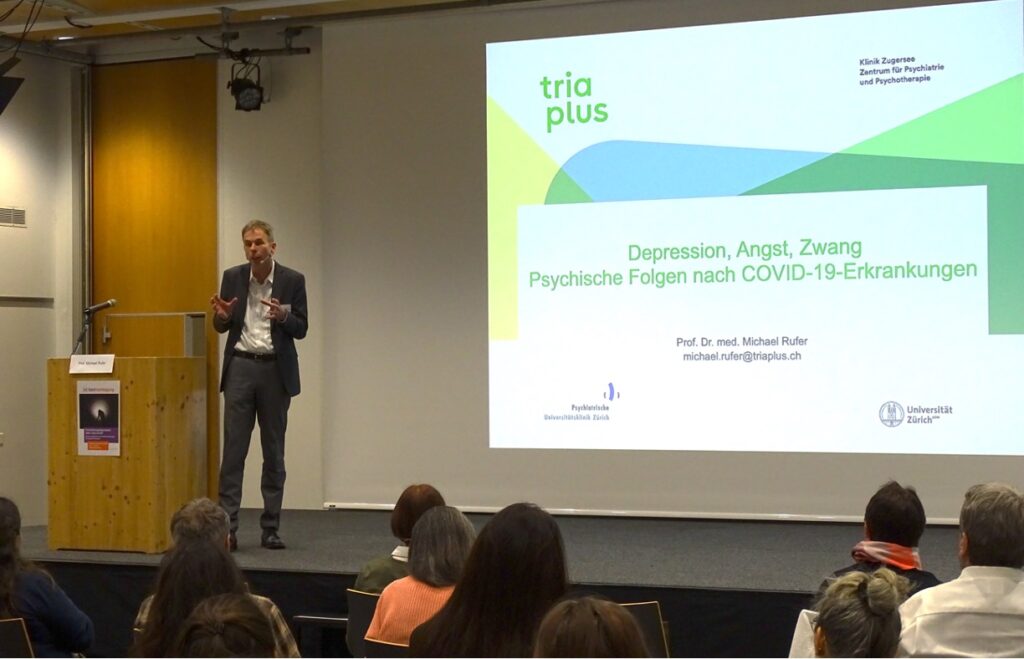More than 100 participants flocked to the Burgbach Hall in Zug on November 9 for the 12th Selo symposium, including many association members, other sufferers and numerous experts from the fields of medicine, psychology and social services.
Under the headline “Exhaustion depression or Long Covid?”, Michael Rufer, Dagmar Pauli and Jochen Mutschler dealt in their presentations with the psychological consequences after a Covid 19 attack, burnout and stress management in children and adolescents and various behavioral addictions as a consequence of the pandemic – with exciting findings.
Psychological impairments following Covid 19 disease are common and likely to persist for years. It is important to recognize these in good time, to develop new therapeutic approaches and to involve those affected and their relatives. Particularly meaningful in this regard was the workshop by Hans Schmied, who, as a person affected, reported on his Covid disease and his long road back. Dagmar Pauli did not attribute the increase in mental disorders among children and adolescents solely to the pandemic. She also spoke of stress and general excessive demands that can lead to burnout in young people. Finally, Jochen Mutschler explained the connections between online and gaming addictions with constant Internet access and excessive consumption of online games or money games.
Andrea Gerber held a workshop on how to deal with young people in education and at work, especially in relation to the post-pandemic zeitgeist. The workshop led by Iva Juchli Lujanovic from the Ameos Seeklinikum Brunnen shed light on the connection between lack of sleep and depression or burnout and provided assistance for better sleep.
The subsequent aperitif showed that the symposium was once again a complete success and that these annual meetings and exchanges are important – for those affected and their relatives – but also for professionals.
The presentations and pictures from the Selo symposium can be viewed at Selo-fachtagung.ch.

